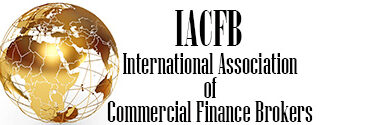
Factoring is a method of small business finance that his been around a long time, several hundred year in fact in the United States. To seek out a little history, if you find yourself in Savannah any time soon, make it a point to take the tour through a beautiful area called “Factors Walk”. Here you will find rows of warehouse that date back to the mid-1800s when “King Cotton” was the South’s most valuable export. Here the Old Savannah Cotton Exchange resides although it now is surrounded with sections dedicated to shops, restaurants, and hotels and other areas made up of impressive residences that are mostly vacation homes, rather than the myriad of old warehouses.
other areas made up of impressive residences that are mostly vacation homes, rather than the myriad of old warehouses.
In our nation’s economic history, and at a time when exports of goods such as cotton thrived, there was also a prospering group of middlemen known as “factors”, that purchased the raw product farmers, warehoused the cotton and other goods, and then sell it to the manufactures of clothing and fabric. While today’s factors no longer find themselves in the business of warehousing goods and raw materials, they are more than ever in the business of financing and are far from limited to dealing only with exports transactions.
Historically factoring has been a method of trade finance for hundreds of years and it now accounts for literally trillions in business financing transactions worldwide. While specialized banks and factors provide billions of financing to domestic businesses here in North America, that is only 2% of the total estimated worldwide volume of 2,724 billion euros. These enormous factoring volumes are included with the five top factoring nations in the world (France, Germany, United Kingdom, Italy, Spain) accounting for roughly 70% of the overall market. So, as you now are beginning to learn…factoring is BIG BUSINESS.
So…How Does Factoring Work?
To understand just how beneficial (and necessary) factoring can be, it is easier to see its need if you first see the problem it solves. Let’s look at an example.
Lets assume an entrepreneur (we’ll call him Phil) starts a landscaping business and provides yard mowing services to other companies. For these weekly services to his customers, Phil sends an invoice at the end of each month. To each customer, Phil grants 30 days to pay the invoice, although the most are late in the payments. In effect, Phil is waiting for up to 30-45 days to get paid for some, if not most of his work.
Phil pays his employees every week and since he needs to wait up to 45 days to get paid, Phil must have “cash on hand” to pay his workers while he waits to get paid for his invoice. That works fine as long as the Phil has the cash on hand to pay his workers. But what if he does not. What if Phil is fortunate enough to attract two or three new large clients but that also require 30 days to pay their invoice. Phil will naturally need to hire more labor to do the job to make payroll. But, as most fast growing small businesses, Phil is about to run out of cash. How does Phil solve the problem so he can accept the new large clients?
It’s All About Purchasing Invoices
So Phil’s landscaping company has a working capital problems and he has two ways to solve it he thinks. He can…
- Decline to take on the new accounts (bad idea)
- He can get a loan
But Phil already knows he’s going to have a problem getting a loan. First, he has no hard collateral to put up for the loan from a bank so he will be turned down. And, he already has borrowed everything he could from friends, relatives, and credit cards just to launch the business and to purchase the lawnmowers and equipment he needed to get started. He needs something else. He needs a way to finance his invoices. And fortunately, there is a perfect financial tool available to him to do just that. FACTORING!
Factors are specialized finance companies that are in the business of solving Phil’s problem. In Phil’s case, Phil will invoice his clients (including his several new BIG clients) and as normal, will provide them 30 days to make the payment. But rather then wait, Phil will now immediately sell the invoices (and rights to payment) to the factor who will advance cash to Phil. The factor now has the rights to the invoice payments and will receive the checks from his clients when they are due. So the results are…
- the clients will still enjoy the 30 day terms of payment
- Phil gets the funds to pay his employees on time
- and the factor, for its services, will earn a small “factoring fee” of about two to three percent (2-3%).
- Phil now utilizes the factor’s services every week. And, in fact, Phil now markets for more and more new clients, since he now has unlimited funds for finance.
But One Question? How Did Phil Find About Factoring?
Although factoring is an enormous financial tool worldwide, many (and certainly most) small business owners simply don’t know much about it. For the most part, when a bank turns down the loan, most owners are completely lost for sourcing other options. For some business owners in Phil’s predicament, however, luck will be in his side. In this case, he may fortunate to find another “middleman” that knows all about the factoring transaction and much more. He will find a Freelance Business Finance / Factoring Broker.
Although everyone knows where they can find a bank, few are familiar with the fact that there are hundreds of commercial factors and commercial banks with factoring departments. For example, well known Wells Fargo Bank has an enormous factoring department nationally, but few customers (and even branch office managers) know it exists. Factors themselves have employees similar to a bank’s loan officers (Business Development Officers) that are in charge of marketing to the cash-strapped “Phil’s” of the world, but the job of marketing to the tens of millions of business owners is simply too large. And that’s where factoring brokers come in.
Very few individuals are aware that virtually all factors (and most banks as well) pay referral fees for ANYONE that refers a factoring client. Factoring and business finance brokers, however, do. Many clients, like Phil, learn about factoring and where to access a factor, through someone like a bookkeeper or similar accounting professional as the result of a “one tine” referral. Additionally, however, there are a group of entrepreneurial individuals that have found out about the secret of factoring and the many other methods of non-bank financing that can remedy the problems of business owners, such Phil when turned down after applying for a traditional bank loan.
Once properly trained, these individuals (brokers) fill a very important niche in the financing chain for small businesses world wide. They seek out small business owners through various marketing methods and make themselves available to assist such owners in sourcing the capital and financial tools, such as factoring, they need. The business of “factoring broker” is more commonly referred to as commercial finance consultant or business finance broker and is a highly professional (and profitable) area of the exciting consulting industry. Those that enter can easily access the training required to the IACFB, the International Association of Commercial Finance Brokers. Want to find out more? Just take a moment to visit the IACFB’s training academy at www.iacfb.academy to find out more.




